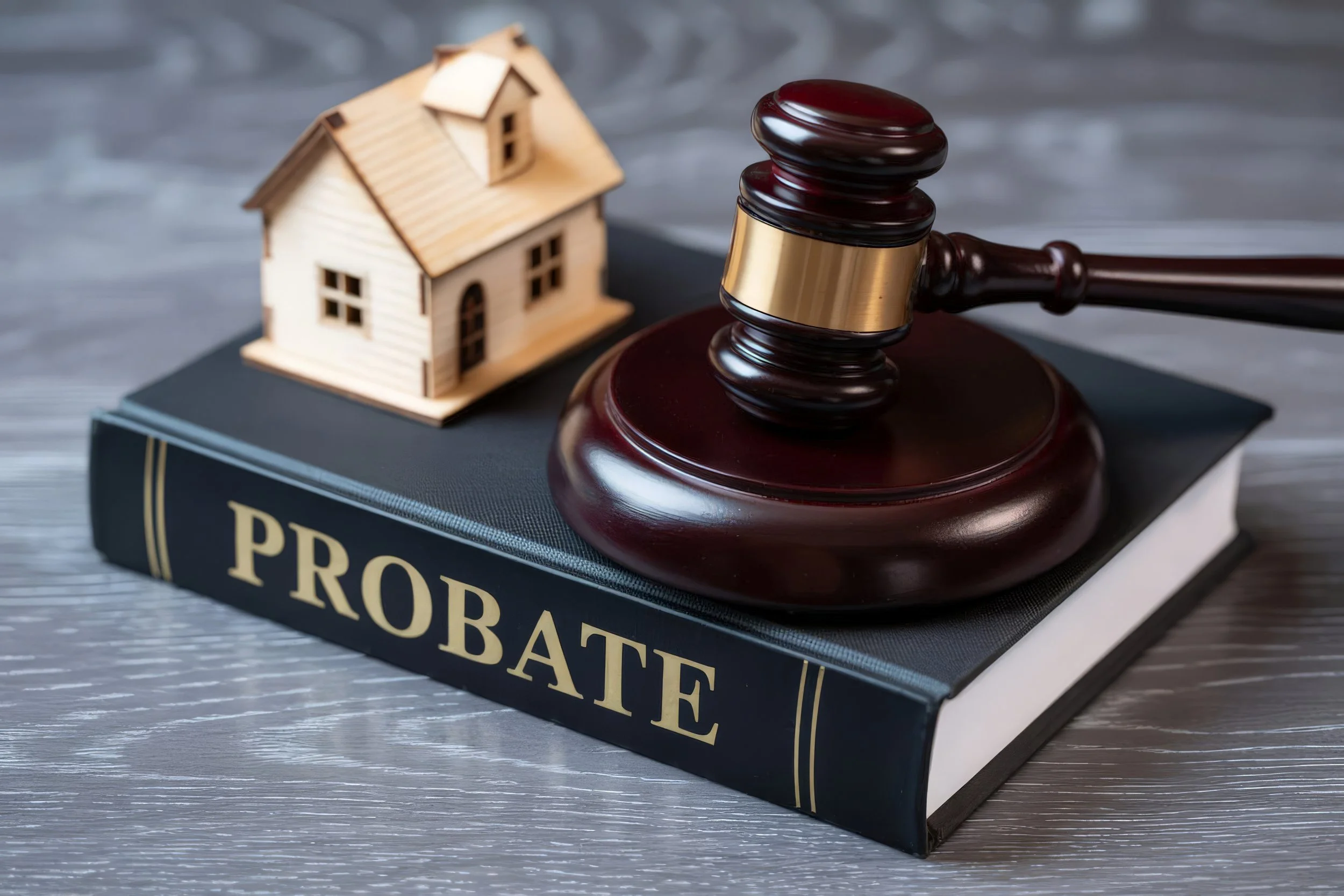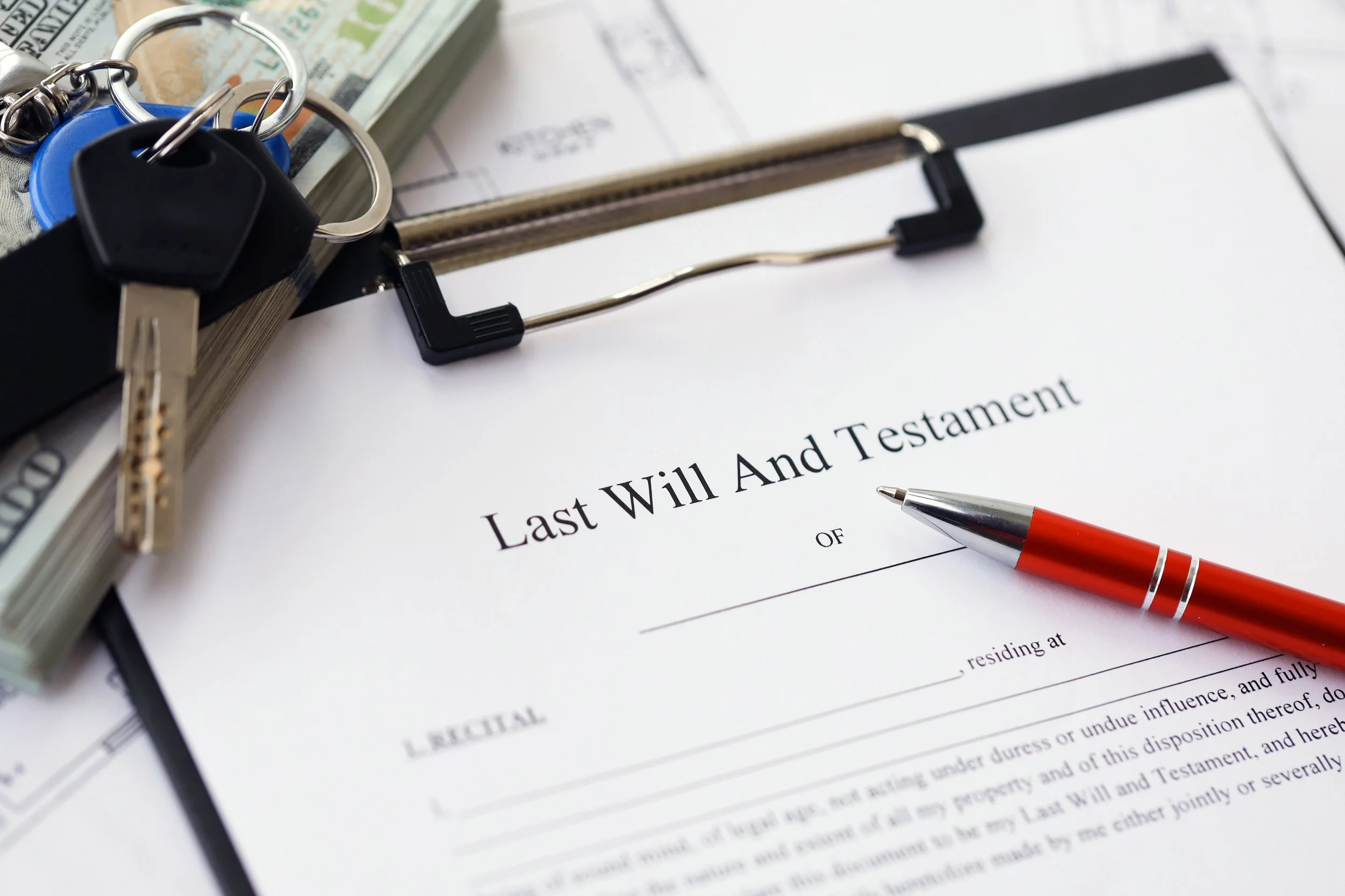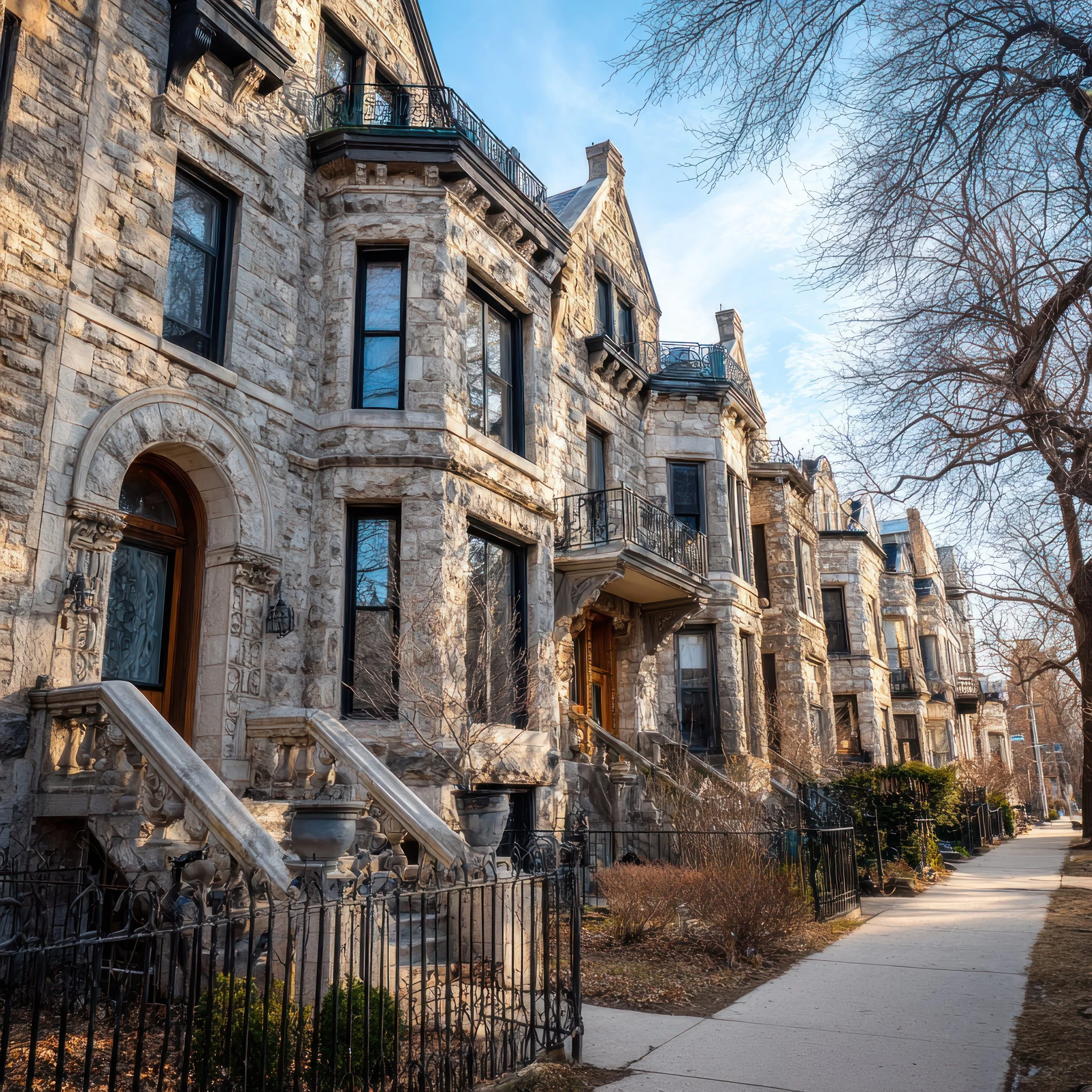Guide to House Ownership During Probate
Who Owns a House During Probate?
Navigating house ownership during probate can be a complex process.
This process often raises questions and concerns for those involved. Understanding who owns a house during probate is crucial.
Probate is a legal procedure that occurs after someone passes away. It involves distributing the deceased's estate according to their will or state law. During this time, the ownership of a house is typically held by the estate.
The executor or administrator plays a key role in managing the property. They ensure the estate's assets are handled properly. This includes maintaining the house and addressing any debts or taxes.
Selling a house during probate is possible but requires court approval. This can add time and complexity to the process. Selling without probate is generally not an option unless specific conditions are met.
For buyers, probate houses can offer opportunities. They are often sold below market value. However, potential legal complications and
property condition issues may arise.
Understanding the probate process helps in making informed decisions. Whether buying or selling, knowing the legalities involved is essential. Legal advice is often recommended to navigate these complexities effectively.
What Is Probate and Why Does It Matter for House Ownership?
Probate is a critical legal process occurring after a person's death. It ensures the deceased's wishes are followed. This process involves verifying a will and distributing assets.
House ownership during probate is temporary. The estate holds the property's title until probate concludes. This can complicate the process of selling or buying the house.
The probate process involves several key steps:
Validating the deceased's will, if one exists.
Appointing an executor or administrator.
Identifying and appraising assets.
Paying debts and taxes owed by the estate.
Distributing the remaining assets to beneficiaries.
Probate is essential for legal clarity. It confirms rightful ownership and resolves any disputes among heirs. This is especially important for valuable assets like real estate.
Understanding probate is crucial for all parties involved. Executors must manage the estate responsibly. Beneficiaries and buyers should be aware of potential delays and legal hurdles.
The process can vary significantly by jurisdiction. Each state has its own rules and timelines. Being informed about local probate laws can prevent unexpected challenges and streamline the process. Legal guidance is invaluable in navigating state-specific probate requirements effectively.
Who Legally Owns a House During Probate?
Ownership of a house during probate is often puzzling. While probate is active, ownership technically rests with the estate. The title doesn't immediately pass to the heirs.
The executor or administrator oversees the estate. They manage the property, which includes maintenance and security. They act in the estate's best interest.
Probate ensures that all estate matters, like debts, are settled before distribution. Legal ownership remains under the estate until these obligations are fulfilled.
Heirs must wait for the probate process to finish. Until the court issues its final decisions, no beneficiary officially owns the property. This interim can be lengthy and complex.
Key points regarding ownership during probate include:
Title remains with the estate until probate concludes.
The executor acts on behalf of the estate.
Beneficiaries gain ownership only after final court orders.
There are exceptions, though. If the house is in a trust or held jointly with rights of survivorship, probate might be bypassed. These scenarios allow ownership to transfer more quickly.
Understanding who owns a house during probate is crucial for effective planning. It informs decisions on whether to sell or maintain the property. Seeking legal advice can clarify personal circumstances and options. This ensures compliance with state laws and the deceased’s wishes.
The Role of the Executor or Administrator
The executor or administrator plays a key role during probate. They are appointed to manage the deceased's estate. This includes handling the house and other assets.
Their duties can be numerous. They must secure the property and pay any outstanding bills. Maintaining insurance and safeguarding against damage is also crucial. These responsibilities protect the estate's value.
Executors oversee financial matters too. They are responsible for settling debts and taxes. Detailed record-keeping is necessary, as transparency is vital during probate. This helps prevent disputes among heirs.
An executor's responsibilities typically include:
Managing the estate’s property and assets
Settling outstanding debts and taxes
Distributing assets to beneficiaries according to the will
Acting in the best interest of the estate is their fiduciary duty. Executors need to be unbiased and impartial. They must keep the estate's and beneficiaries' interests as their top priority.
Navigating legal procedures and ensuring compliance with court mandates are also essential. Hiring professionals, like attorneys and appraisers, can aid in these tasks. This ensures the executor effectively fulfills their role during probate.
Can You Sell a House During Probate?
Selling a house during probate is possible, but certain steps are necessary. The executor or administrator manages this task. They must obtain court approval before proceeding with any sale.
Several factors influence the ability to sell. The will might include specific instructions about the property. Executors need to ensure compliance with any such directives. Fulfilling these wishes is a critical component of their role.
Court approval is not instant. Executors must file a petition and wait for the court’s green light. This can add time to the entire process, often causing delays. Hence, patience is a necessary trait when navigating probate sales.
Sellers should be aware of the probate sale process:
Filing a petition to sell the house with the court
Notifying interested parties of the intended sale
Conducting an open house for potential buyers
Additionally, court hearings might be required to finalize the sale. This ensures transparency and fairness for all potential heirs. Ensuring every step meets legal requirements safeguards the probate process.
Selling a House Without Probate: Is It Possible?
Selling a house without going through probate can be complex. It's generally possible only under specific conditions. These conditions typically relate to how the property is owned.
If the house is held in a trust, probate isn't necessary. Trusts allow properties to bypass the probate process. This can simplify and expedite the transfer of ownership. Another scenario is joint ownership with rights of survivorship. Here, the surviving owner automatically inherits the house without probate.
To sell a house without probate, consider these common pathways:
Property placed in a living trust before death
Joint ownership with rights of survivorship
Transfer on death deed if applicable in your state
Understanding these options can guide the decision-making process. Each has its benefits and legal requirements. Consulting with a legal expert is wise to ensure compliance. This avoids unforeseen legal challenges during the sale process.
Common Problems With the Probate Process
Probate often brings unforeseen challenges. One key issue is the time it takes. The process can drag on for months or even longer. Delays can arise from court backlogs, disputes, or incomplete paperwork.
Legal fees can also add up quickly. Lawyers and court costs can eat into the estate's value. This reduces the amount available to heirs. Disputes among beneficiaries are another frequent problem. Such disagreements can further delay the process.
Additionally, executors might face difficulties in managing the estate. Responsibilities include settling debts and maintaining property. These tasks can be time-consuming and stressful. Each complication extends the timeline and increases costs.
Key problems with the probate process include:
Prolonged legal proceedings and potential disputes
Accumulation of legal fees and associated costs
Challenges in managing and maintaining the estate
Understanding these challenges is important. Being aware of them can help in planning ahead. Knowledge allows for better
decision-making and smoother navigation of probate hurdles.
Probate Houses for Sale: What Buyers Need to Know
Buying a probate house can present unique opportunities. These properties often sell at lower prices, providing potential bargains. However, buyers should proceed with caution and conduct thorough research.
Understanding the legal aspects is crucial. Probate sales require court approval, which can extend timelines. Prospective buyers should be prepared for possible delays and procedural complexities. Working with professionals familiar with probate can be beneficial.
Due diligence is key. Assessing the property's condition and market value is vital. Since probate homes might have been vacant for some time, they could require repairs. Cost assessments are necessary to ensure a good investment.
Key considerations when buying probate houses include:
Ensuring legal compliance and understanding court approvals
Evaluating property condition and potential repair costs
Performing market analysis for accurate valuation
Probate properties can be profitable if handled correctly. Buyers should maintain a balance between caution and enthusiasm. Proper preparation and understanding of the process enhance the chances of a successful purchase.
Pros and Cons of Buying a Probate House
Purchasing a probate house can offer significant advantages. A key benefit is the potential for lower purchase prices. Probate homes often sell below market value, providing a cost-saving opportunity for buyers. Additionally, there is usually less competition in the probate market compared to traditional home sales.
Pros:
Potential for Below-Market Prices: Probate homes are often priced lower.
Less Competition: Fewer buyers are involved, making negotiations smoother.
Investment Opportunities: These properties can yield high returns after renovations.
However, there are drawbacks to consider. Legal complexities can arise, requiring careful navigation of the probate process. The time-consuming nature of probate sales is another concern, as legal approvals can take months. Moreover, the physical condition of probate houses may not always meet expectations, needing extensive repairs.
Cons:
Legal Complications: Navigating court approvals can be challenging.
Delayed Process: Probate sales often require a lengthy timeframe.
Potential Repair Costs: Many probate houses need substantial renovations.
Considering these factors is essential. Buyers must weigh the pros and cons carefully. Engaging knowledgeable professionals can ease the process and minimize risks associated with probate purchases.
Problems Buying a Probate House
Buying a probate house can be challenging. Legal hurdles often pose significant obstacles for buyers. The probate process requires court approvals, which can lead to extended delays.
Another concern is the property's condition. Probate homes can be in disrepair due to neglect. Buyers may face unexpected costs for renovations.
There are also potential issues with title or ownership disputes. Disputes may arise between heirs or other claimants.
Potential Problems:
Legal Delays: Lengthy court approval process
Condition Issues: Homes may be in poor repair
Ownership Disputes: Conflicts over property ownership
Being aware of these problems can help buyers prepare. Conducting thorough research and due diligence is vital. Engaging experts in probate sales can also provide valuable guidance, ensuring smoother transactions.
Tips for Selling a Probate House Successfully
Selling a probate house can be complicated. However, with the right approach, it can be done smoothly. The key is to follow some essential tips to streamline the process.
First, ensure you understand the legal requirements. This includes obtaining court approvals when necessary. Keeping all paperwork organized is crucial.
Next, work with a skilled real estate agent experienced in probate sales. They can provide valuable advice and marketing strategies. Their expertise can make the sales process more efficient.
Lastly, maintaining the property in good condition can attract buyers more quickly. Address any major issues that could deter potential buyers. A well-presented home can significantly ease negotiations.
However, traditional sales aren’t the only path.
If you’re looking to simplify the process even further, consider selling the probate property off-market to a local real estate investor. This route can be especially helpful if the home is outdated, needs repairs, or if the estate is looking to settle quickly.
Unlike listing on the open market, selling to a direct buyer eliminates the need for showings, inspections, or repairs. Investors typically purchase as-is, which can be a relief when dealing with a deceased person’s belongings or complex family dynamics. You’ll also avoid commission fees and lengthy closing timelines.
Steps to Consider:
Understand Legal Requirements: Stay informed of necessary approvals
Hire a Probate Expert: Work with an experienced real estate agent
Maintain Property Condition: Ensure the house is presentable and issue-free
Following these tips can lead to a successful sale. Preparation and expert help can make all the difference.
Legal Considerations and State Variations
The probate process can differ by state, which affects house ownership. Laws and procedures impact timelines and required documentation. Understanding your state's process is vital.
In some states, probate can be faster. Others may require more extensive court involvement. Knowing the specifics can prevent unnecessary delays.
Getting legal advice is often recommended for navigating these complexities. An attorney can provide guidance tailored to state laws. They help ensure compliance and protect your interests.
Key Considerations:
State-specific Laws: Know your state's probate regulations
Process Duration: Understand expected timelines and variations
Legal Assistance: Consider hiring a knowledgeable attorney
Being informed about these legal aspects aids in managing the probate process effectively. Proper guidance can minimize stress and errors.
Conclusion: Navigating House Ownership During Probate
Understanding house ownership during probate is crucial for a smooth process. It involves navigating complex legalities and potential challenges. Careful planning and awareness can prevent common pitfalls.
Taking informed steps can streamline the experience. Whether you're an executor, a seller, or a potential buyer, knowledge is empowering. Legal guidance is often indispensable, ensuring compliance with state-specific probate procedures. This guidance aids in handling probate with confidence.
FAQs
What happens to a house after the owner’s death?
After the death of a homeowner, their real estate becomes part of the deceased person’s estate. The property is not immediately transferred to beneficiaries—instead, it must go through the probate process before any decisions can be made about selling, transferring, or occupying the home.
Who technically owns inherited property during the probate process?
During probate, no individual outright owns the home. Instead, the house is considered part of the assets of the estate, which is managed by the court-appointed executor or administrator. The probate court oversees this process to ensure everything is handled according to the estate planning documents or state laws if there’s no will.
Can you sell a house that’s still in probate?
Yes, but the process can be complex. A probate attorney may be needed to navigate the legal steps, especially if multiple beneficiaries are involved. In many cases, the court must approve the selling of the inherited property before the transaction can proceed.
Do beneficiaries automatically get ownership of real estate after someone passes?
Not immediately. Beneficiaries do not legally own the home until the probate process concludes and the probate court formally distributes the deceased person’s assets according to the will or intestate law.
Why is estate planning important when it comes to property ownership after death?
Without proper estate planning, the probate process can be long, costly, and stressful. Having a will or placing real estate in a trust can help avoid confusion about who owns the property and speed up distribution to the rightful beneficiaries.
Disclaimer: This content is for informational purposes only and does not constitute legal advice. Probate laws vary by state, and every situation is unique. If you’re managing an estate or have questions about your rights, please consult a qualified probate attorney or legal professional.



